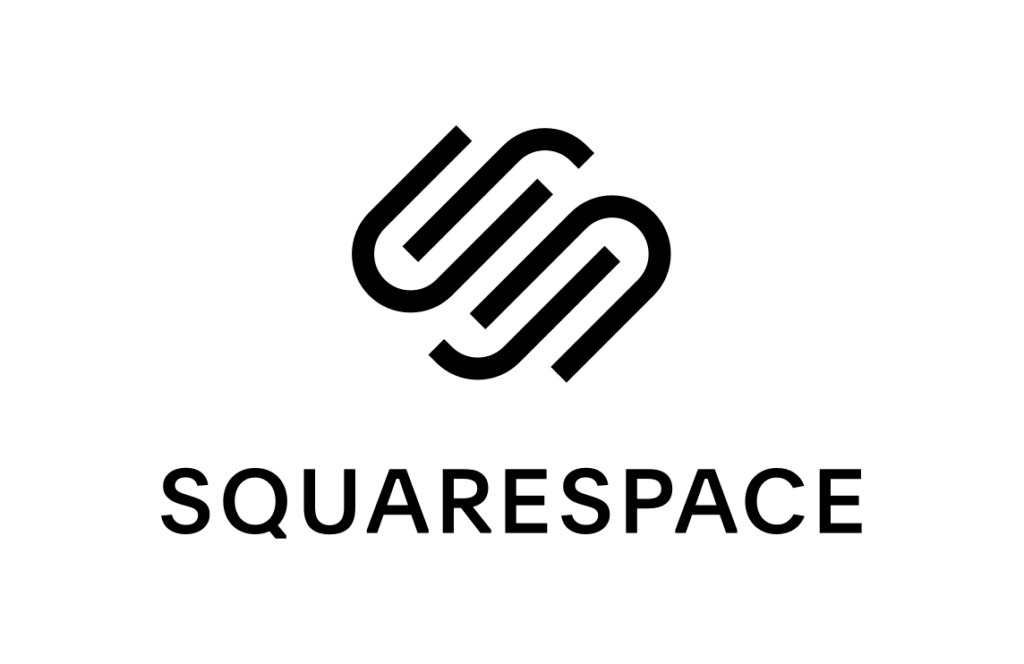The Best Ecommerce Platforms for Small Businesses
Ecommerce solutions help business owners create their online stores. With the right platform, users can showcase their products and attract more sales. Small businesses should consider the ease of use and price of each platform. Although the products mentioned in this piece share the same purpose, they work best in different circumstances. This piece will give you an overview of the popular eCommerce platforms for small businesses.
Affordable Ecommerce Platforms for Small Businesses
Shopify – Web Hosting
Shopify is a popular and versatile platform for small businesses. It is extremely user-friendly and offers a wide spread of features. You can customize every aspect of your store with HTML and CSS. Users host their websites on Shopify and have access to a complete blogging platform.
Shopify integrates with over one hundred payment gateways, making it extremely convenient for merchants and customers. You have the option to set up free shipping and determine the price point at which it applies. Shopify is unique because it includes abandoned checkout recovery for all of its subscription levels. It also offers a free SSL certificate, which is designed to protect transaction and credit card information.

This platform is essential for conducting business online. Shopify is search engine optimized and can be used to generate SEO-friendly product reviews. It integrates with the top social media sites, and businesses can sell their products directly from Facebook. With customer profiles, you can achieve deeper insights into shopping habits. Shopify also offers advanced analytics that track sales, site visits, and referrals.
The Basic Shopify plan starts at $29 per month, which is well suited for new eCommerce businesses. The next tier is called Shopify, priced at $79 per month. It might be a good option for eCommerce businesses that are looking to expand their operations. The most expensive plan, Advanced Shopify, is best for larger businesses that want in-depth reporting.
Bottom Line:
Shopify is a great option for small businesses that want to host their website on their platform. The plans are a little more pricey, but it has a proven track record of improving sales. The ability to customize your website makes it a strong contender for anyone who knows CSS and HTML. Even if you are an absolute beginner, you can create an online store with ease.
“I will, and have, recommended Shopify several times. It is the best way for small business ideas to come to life in an easy, streamlined fashion. The plug-and-play accessibility for building a website turns any design/programming novice into a professional in no time. It is well worth the money and pays for itself in no time at all.”
Scott Hunty | National Account Manager | 120Water, 51-200 employees
Wix – Website Builder
Wix is a website builder that promises to improve your online store’s conversion rate. It allows users to customize everything from product pages to carts. It is extremely customizable and designed to optimize the customer experience. With Wix, you can sell up to 50,000 products. It is compatible with a large number of payment gateways, including PayPal, Stripe, and Square.
Wix is ideal for multichannel sales. Businesses can feature their products on social media, Google Shopping, and eBay. It will monitor your inventory across all sales channels, ensuring that your customers are up-to-date on product availability.
For eCommerce businesses that are looking to expand their customer outreach, Wix offers automated email campaigns. These emails will attract attention with special offers or promotions. You can also improve customer engagement with Wix’s blogging platform, newsletters, or your own loyalty program.

Wix goes beyond the core eCommerce capabilities. You can use this platform for online bookings, event management, or accepting reservations. All of the plans include these features, starting at just $23 per month.
Bottom Line:
Wix is best for small businesses that want to build their own website. It offers a wide range of features and is extremely user-friendly. The marketing capabilities are perfect for attracting more sales. You can use Wix to reward customer loyalty or establish higher rates of customer engagement. It is well suited for beginners, enabling them to seamlessly create their professional website. You should strongly consider Wix if you are interested in expanding beyond standard eCommerce features.
“Wix is perfect if you need your website to look professional, but you don’t have a lot of resources or time. It’s also great if you’ve never built a website because the platform suggests design ideas and easily shows you how you can gradually improve your site with plug-ins like analytics, payments, email forms, etc. You’ll have a beautiful website as soon as you start, but it will become even more personalized with the more you learn.”
Brittney Collier | Marketing Communications Specialist | Billtrust, 201-500 employees
Magento Open Source – Flexible Ecommerce
Magento Open Source is a self-hosted eCommerce platform. This cost-free option is ideal for small businesses that are just getting started. Magento Open Source provides basic e-commerce capabilities, such as accepting payments and shipping. You can take advantage of global selling, which allows you to reach more potential customers.
Another benefit of Magento Open Source is instant purchase. This feature ensures a smoother and faster checkout process, greatly improving the customer experience. Magento Open Source is mobile optimized and offers a site search feature that promises to improve conversion rates. The basic SEO functionality is recommended for businesses that want to establish better rankings in the search results.

If you have a little more room in your budget, you can expand Magento Open Source with extensions. The Magento Marketplace offers solutions for enhanced customer support, marketing, and website optimization. The prices for these extensions range from completely free to over a hundred dollars.
Potential users should be aware that Magento Open Source is not designed for advanced B2B capabilities. More established B2B companies should consider purchasing Magento Commerce, which includes quoting and custom catalogs.
Bottom Line:
Magento Open Source is ideal for small businesses on a budget. You can use this platform for free, but it does not offer extensive features. If you want to expand the capabilities of Magento Open Source, you will most likely have to pay for extensions. It is not as intuitive as other eCommerce platforms, so you should take some time to overcome the learning curve. It is also not the best choice for B2B sales. You should explore Magento Open Source if you prioritize speed or offer a large selection of products.
“Overall, Magento is one of the few platforms that can handle many products and mass changes while still maintaining speed. The other pro of using Magento over other platforms is that there is no monthly cost or commissions that they charge for making sales, which I think is a huge improvement over other popular platforms, and is worth a look.”
Ramon Khan | Freelance Marketing Consultant | Ramon Khan Digital Marketing, 1-10 employees
WooCommerce – WordPress Plugin
WooCommerce should be the go-to platform for WordPress users. It enables you to launch an online store directly from your website. WooCommerce saves time on web design, reducing the effort put into creating an online store. It offers a wide range of features that support small businesses. You can accept payments, manage shipping, and take advantage of SEO tools.
This platform is extremely user-friendly and an ideal choice for beginners. WooCommerce offers a New Store Owner’s Guide that provides vital instructions for inexperienced users. Its blog has helpful posts for users that need to develop eCommerce strategies. The WooCommerce community is extensive and full of successful online stores.

WooCommerce offers a limited selection of free extensions. They support live chat, payment processing, and shipping. Another notable extension is Jetpack, which is equipped with extra security features. It can verify identities, protect data, and scan for malware.
Although WooCommerce is technically free, there are additional fees. Payment gateways, such as WooCommerce Payments and PayPal, typically charge 2.9% + $0.30 per transaction.
Potential users should be aware that WooCommerce is not designed for B2B sales. You do have the option to purchase the B2B extension, which costs $149 per year. It includes five of WooCommerce’s most popular extensions and extra B2B features. Even if you do not purchase the B2B extension, you can establish a basic online store.
Bottom Line:
WooCommerce is designed for small businesses that use WordPress. It offers a limited number of free extensions. B2B companies that are interested in WooCommerce should consider purchasing the B2B extension. WooCommerce is extremely user-friendly, and beginners have access to multiple resources. Ecommerce businesses that are not comfortable with WordPress should consider using a different platform.
“I have implemented WooCommerce on multiple websites. If you are already using or plan on using WordPress, it’s a wonderful solution with many plugins and extensions that utilize its core to make most store/shop configurations. Being able to easily implement an online store and manage it from your website’s backend makes it convenient to manage.”
Dustin Day | Director of UX Development, Social Media, and SEO/SEM | DFT, 1-10 employees
Squarespace – Customizable Design Themes
Squarespace is well-known for its collection of eCommerce templates. This platform is optimized for mobile devices and web browsers. Squarespace is not as intuitive as other eCommerce platforms, but it does provide more opportunities for customization. Users who are familiar with CSS or Javascript can modify the Squarespace templates. It has more of a learning curve, so beginners should become familiar with the user interface.
This platform is extremely affordable for eCommerce businesses. The Business plan costs $18 per month for an annual subscription or $26 per month for a monthly subscription. It includes a custom domain, SEO features, and basic website metrics. Squarespace charges a 3% fee per sale with the Business Plan.
If you upgrade to the Basic Commerce plan, you can access more advanced features. They include e-commerce analytics, limited availability labels, and merchandising tools. The Basic Commerce plan starts at $26 per month for an annual subscription, or $35 per month for a monthly subscription.

The Advanced Commerce plan, which is the most expensive, offers abandoned cart recovery. You can use the Commerce APIs to build third-party integrations, give advanced discounts, or have more control over your shipping rates. This plan costs $40 per month for an annual subscription or $54 per month for a monthly subscription.
Squarespace is ideal for businesses that want to improve their branding or customer outreach. Its email marketing feature has the potential to boost engagement. Squarespace helps manage your contact list and sends automated emails to your customers. It also enables users to create professional social media content, which could help your business reach a larger audience.
Bottom Line:
Squarespace is a good choice for businesses that want to enhance their web design. The templates are unique and can be further customized with CSS or Javascript. It does have a considerable learning curve, so it is not ideal for beginners. Those who are looking for advanced features will have to purchase the most expensive plan. Overall, Squarespace is the best eCommerce platform for artistic freedom.
“Squarespace is great for any website type, but it really shines for an artist to display their work. The layout is hip and modern, which works fantastic for those looking to target customers that are high-end and internet savvy.”
Edmond Lorts | Partner Management Associate | Wikibuy, 11-50 employees
More Ecommerce Platforms
If you are interested in learning more about eCommerce platforms, be sure to visit our eCommerce Platforms page. The category description provides an overview of features and factors to consider when comparing products.
Was this helpful?

Want to learn more about eCommerce options, and read real reviews? Check out the eCommerce Platforms Category page!
